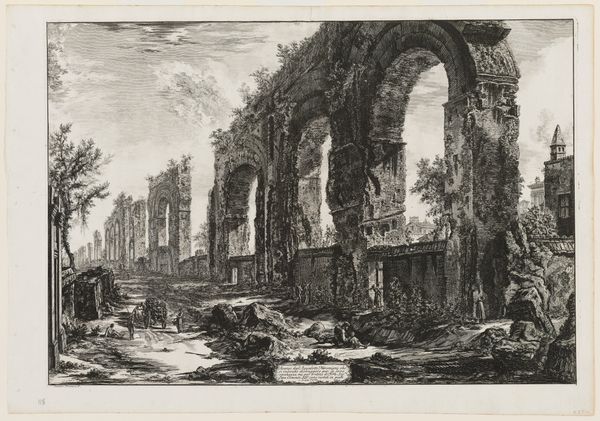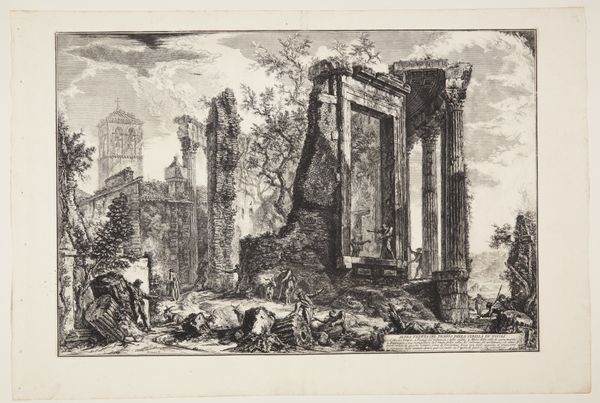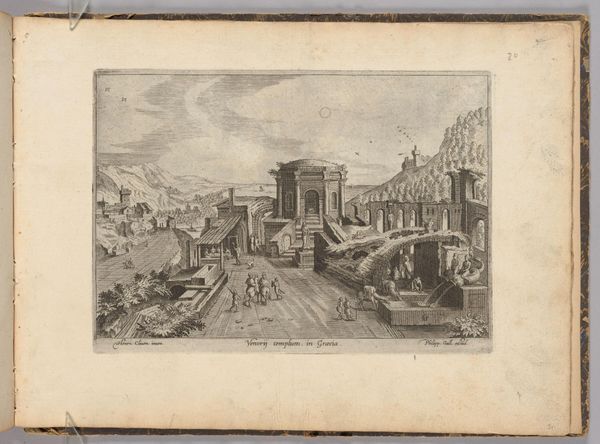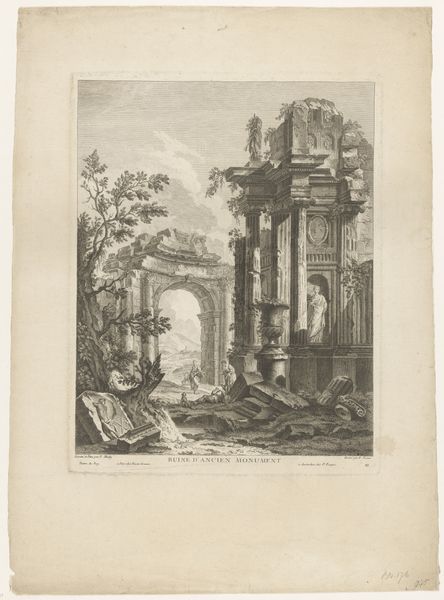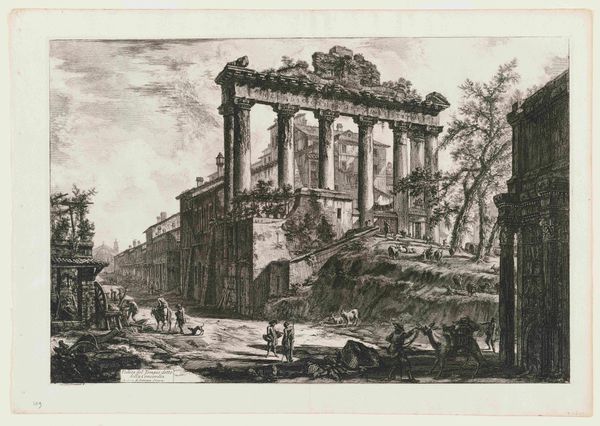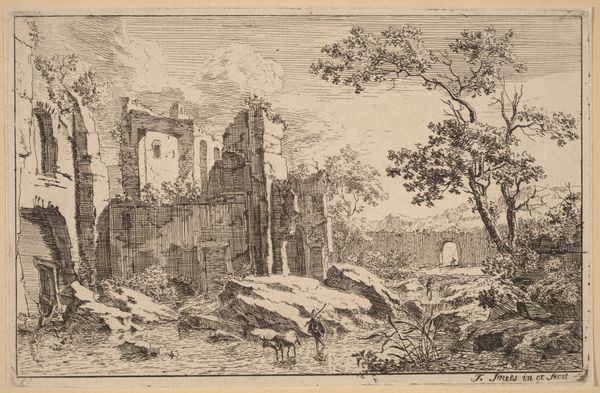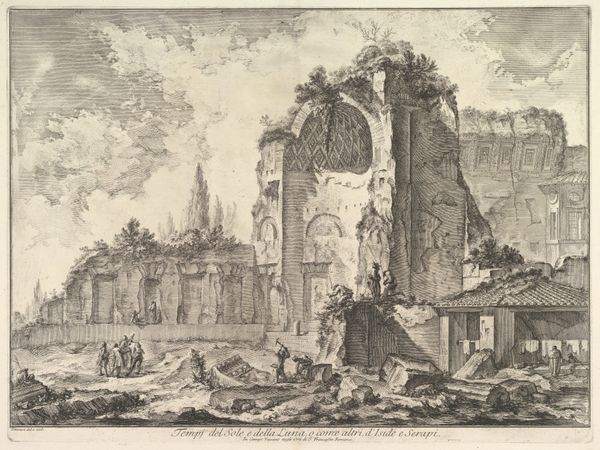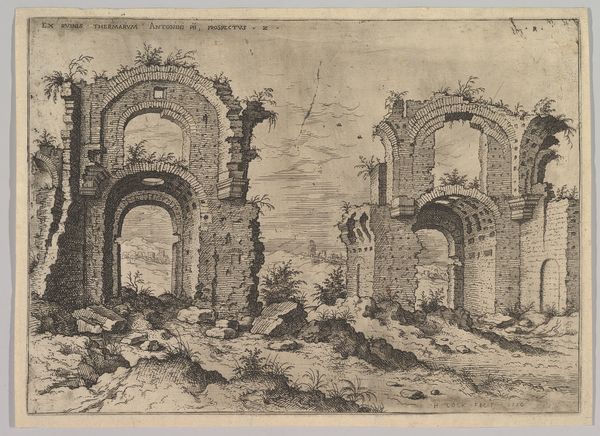
The Baths of Trajan (Erroneously Called the Baths of Titus) c. 18th century
0:00
0:00
print, etching
# print
#
etching
#
landscape
#
ancient-mediterranean
#
cityscape
#
italy
Dimensions: 19 x 27 5/16 in. (48.26 x 69.37 cm) (plate)21 1/4 x 29 7/8 in. (53.98 x 75.88 cm) (sheet)
Copyright: Public Domain
This is Giovanni Battista Piranesi’s etching, "The Baths of Trajan," made sometime in the 18th century. The composition is dominated by the stark contrast between the intricate details of the ruins and the open, desolate landscape surrounding them. The play of light and shadow, achieved through fine lines, creates a sense of depth and volume. The architectural forms are rendered with precision, yet they appear consumed by nature, evoking a sense of melancholy and decay. Piranesi was deeply influenced by the philosophy of the sublime, and the vastness of the scene, juxtaposed with the fragility of human construction, speaks to this concept. He destabilizes established meanings by presenting a romanticized vision of ruins. Are they remnants of a glorious past, or emblems of human vanity? This interplay challenges fixed meanings and engages with new ways of thinking about history and perception. The etching invites us to contemplate the transience of human achievement against the backdrop of timeless nature.
Comments
minneapolisinstituteofart about 2 years ago
⋮
This lonely ruin is the remains of a magnificent bath commissioned by Emperor Trajan (53–117), which was five years in the making. From about 200 to 600 CE, it was the place for Romans to see and be seen. Trajan’s complex inspired later bathing projects like the Baths of Diocletian, which Piranesi also etched. Here he shows us one of the exedrae, semicircular rooms that served as gathering places within the sprawling compound.
Join the conversation
Join millions of artists and users on Artera today and experience the ultimate creative platform.
